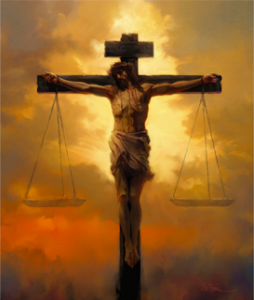8: Free Will, Love, and Divine Providence – Teaching Plan
Key Thought : While God is omnipotent, He does not determine everything that happens. But God can transform a terrible situation into a blessing.
February 22, 2025
1. Have a volunteer read Psalm 81:11-14; Isaiah 30:15,18; 66:4; Luke 13:34.
- Ask class members to share a short thought on what the most important point is in this passage.

- What do these texts say about the question of whether God’s will is always being done here?
- Personal Application: What kind of deep problems would the idea that everything that happens is God’s direct will? How would that connect God to evil choices? Share your thoughts.
- Case Study: One of your relatives states, “If God doesn’t always get wehat He wants, how does that influence the way we think about what happens in this world? How does this have practical implications that God has unfulfilled desires for us and the world?” How would you respond to your relative?
2. Have a volunteer read Revelation 11:17; Matthew 19:26; Luke 1:37; Jeremiah 32:17-20.
- Ask class members to share a thought on what the most important point in this text is.
- What do these texts teach us about God’s power?
- Personal Application: What have you done that you Knew God didn’t want you to do? What does this teach us about the reality and consequences of free will? Share your thoughts.
- Case Study: One of your friends states, “Since God is all-powerful, He wants to save everyone, then everyone will be saved. All these texts about judgment are just warnings to scare us into being obedient and following His will.” How would you respond to your friend?
3. Have a volunteer read Ephesians 1:9-11.
- Ask class members to share a short thought on what the most important point in this text is.
- Is this text saying that some are predestined to be saved, and some are predestined to be lost?
- Personal Application: What kind of attitude and response to God might people have if one believed in predestination? Share your thoughts.
- Case Study: One of your neighbors states: “How can God make all things work together for good even if He knows all the choices, even bad ones, that people will make? Can we draw any comfort in this?” How would you respond to your neighbor?
4. Have a volunteer read John 16:33.
- Ask class members to share a thought on what the most important point in this text is.
- What hope, even in trials and suffering, does this text offer us?
- Personal Application: How often do you think about the fact that God is grieved by suffering as welll? Share your thoughts.
- Case Study: Think of one person who needs to hear a message from this week’s lesson. Tell the class what you plan to do this week to share with them.
(Truth that is not lived, that is not imparted, loses its life-giving power, its healing virtue. Its blessings can be retained only as it is shared. ”Ministry of Healing, p. 148).
